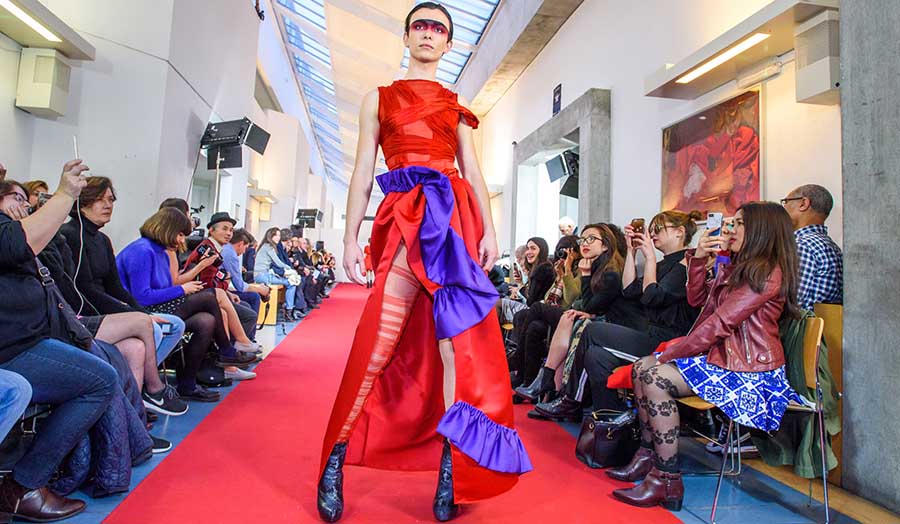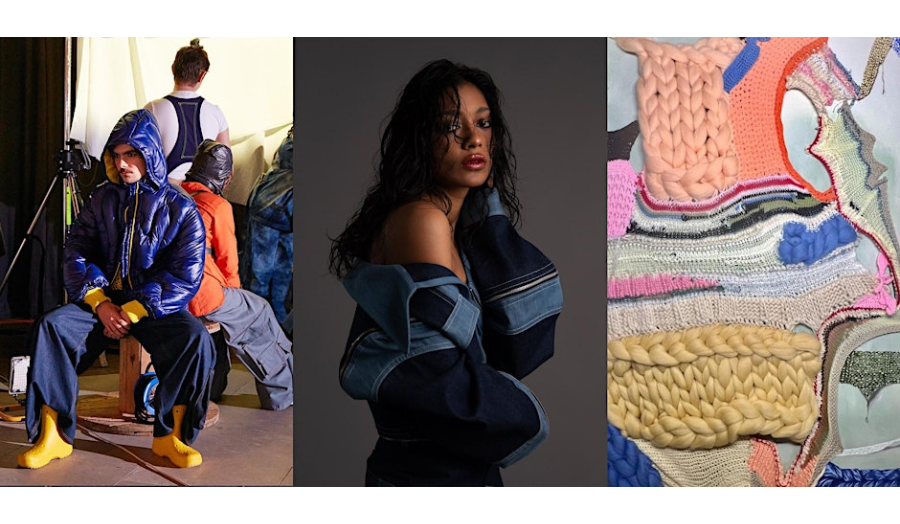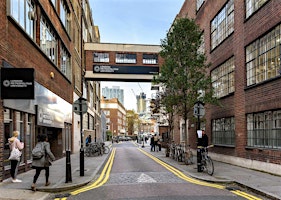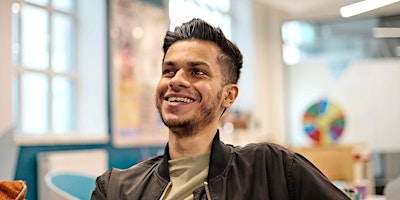Apply for this course
Please select when you would like to start:
If you're a UK applicant wanting to study full-time starting in September, you must apply via UCAS unless otherwise specified. If you're an international applicant wanting to study full-time, you can choose to apply via UCAS or directly to the University.
If you're applying for part-time study, you should apply directly to the University. If you require a Student visa, please be aware that you will not be able to study as a part-time student at undergraduate level.
Why study this course?
This is a top-up version of our Fashion BA (Hons) degree. A top-up degree is the final year (Level 6) of an undergraduate degree course and is for those who have a foundation degree, Higher National Diploma or equivalent qualification, or those wishing to study the final year of their degree in London.
You’ll be taught through tutorials, workshops and contextual studies by our dedicated academic team and visiting lecturers, who’ll share their decades’ worth of experience working with iconic fashion houses including Balmain, Givenchy, Louis Vuitton and Pringle.
Learn from industry professionals
Tutored by experts in the field, you’ll work within real life fashion studios and network with leading names in the business
Build your future career network
We invite major brands to share their knowledge with you, and these invaluable networking opportunities will help you secure internship roles and future employment with industry leaders
Get involved in projects, competitions and events
There are regular opportunities to collaborate with fellow students, as well as ongoing live projects, international industry competitions and the chance to participate in London and Paris fashion week
Course modules
The modules listed below are for the academic year 2024/25 and represent the course modules at this time. Modules and module details (including, but not limited to, location and time) are subject to change over time.
Year modules
3D Design and Development 3
This module currently runs:all year (September start) - Tuesday afternoon
all year (September start) - Tuesday morning
all year (September start) - Friday morning
all year (September start) - Friday afternoon
(core, 30 credits)
Through synthesis of the knowledge of processes and design principles that you have gained in the previous years of study, using intellectual, creative and practical skills, you will design and develop self-directed projects, including your ‘major project’.
The projects will be individually set, but will require negotiated and approved project proposals before commencing. You will undertake and record in-depth research, a well-constructed design development process, the exercise of critical thinking skills and the selection of production skills resulting in a significant body of creative outcomes.
Your process will include market and competitor research, idea generation, concept development, material investigation, sampling, modelling or prototyping and visualisations that lead towards the realisation of the project proposed in the ‘Project Resolution’ module.
The module will require you to critique your own work and adopt the professional standards of your disciplines. The module emphasises the growth of a personal focus and creative identity whilst acknowledging commercial and professional ethics, expectations and constraints.
Critical & Contextual Studies 3: Dissertation (3D)
This module currently runs:autumn semester - Wednesday afternoon
autumn semester - Wednesday morning
(core, 30 credits)
Critical and Contextual Studies (CCS) in Level 6 offers you an opportunity to understand and explore the historical, social, cultural and economic factors which influence, and provide a context for, the development of architecture, art and design practice. Building on critical and academic skills gained during two years of previous study, the module encourages you to develop an awareness of issues around which there is some debate, uncertainty or contest. Based on this awareness, you will develop a set of research questions which constitute the topic of your study. This topic can be theoretical, historical, or technical and you may, with guidance, decide to engage with an area of scholarly interest outside the territory of your degree course.
You will develop your topic and respond to your research questions in the form of an extended critical study or Dissertation (6,000–7,000 words). Through this study you demonstrate that you can thoroughly research a topic, use appropriate methods of investigation, and work in a methodical and organised way to develop a coherent argument or line of thought. Teaching and Learning on the module is designed to support you in this process through a combination of tutorials and one to one supervision; as well as a series of formative and summative assessments which prepare you for the final submission.
The final form and presentation of your Dissertation can reflect a broad range of approaches to research and writing. It may include visual materials or other non-written forms of presentation as long they support your enquiry and comprise an integral part of the whole. By prior approval at the start of the module, your research can be part practice-based, and include primary research and fieldwork.
The dissertation may, by prior approval at the start of the module from the Head of Subject, be part practice-based and can include fieldwork and primary research in its methods. Its form and approach can reflect a broad range of design-specific approaches based on discussion and agreement with your supervisor.
By virtue of the sustained, independent nature of the learning and substantial final output, the dissertation is also intended to prepare you for possible postgraduate study.
Read full detailsMajor Project Resolution: Fashion
This module currently runs:all year (September start) - Tuesday afternoon
all year (September start) - Tuesday morning
all year (September start) - Friday morning
all year (September start) - Friday afternoon
(core, 30 credits)
The Major Project module provides the opportunity for you to prepare yourself for employment or independent practice in fashion, or to progress to higher studies. Through the self-determined project, you will synthesise the specialist knowledge and skills that you have gained through the course and effectively communicate these through the professional-standard production of your designs.
You will exercise your abilities in selecting, analysing and applying knowledge, skills and understanding to a fully researched project. Through this process, you will be able properly to understand and communicate your strengths, interests and position in your field, as well as your opportunities for future professional development.
A negotiated and approved proposal will confirm your individual project. Through careful planning and recording of process, you will demonstrate your ability to negotiate the complex and changing nature of problems in professional fashion design, balancing the competing demands of creativity, practicality, commercial reality and ethical principles.
Your outcome will exhibit a professional standard of realisation, contextualisation and presentation, providing the elements for an interview-ready portfolio of practice.
Read full detailsProfessional Practice 2
This module currently runs:spring semester - Friday afternoon
(core, 30 credits)
By the end of this module you will have a detailed plan and materials ready for the launch of your career, whether that be in employment, self-employment or further study.
You will be set tasks to research in detail how designers and practitioners in your sector (your future competitors) build their professional and creative profiles and businesses and achieve success. There will also be a focus on how to identify opportunities such as competitions, exhibitions and notice of commissioned work being available. How to achieve effective and cost-effective promotion of your practice will be demonstrated, using the full range of traditional and newly-available communication channels and strategies as appropriate for your practice.
You will be asked to identify what is distinctive about your practice and approach, so that you can make an offer to the market that is attractive and unique. This will require fully professional and sophisticated visual presentation of your work in formats that are recognised by your professional peers and potential clients or employers.
You will continue to research the various roles and employment opportunities that are available to you, understanding how those roles interact and what the skillset requirements for them are, so that you can evaluate and select from the widest range of career openings.
Your final submission should represent a fully rounded, professional and appealing creative profile ready for presentation to potential employers and clients.
Read full details



.jpg)















